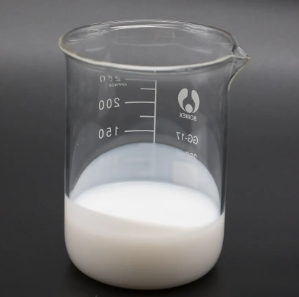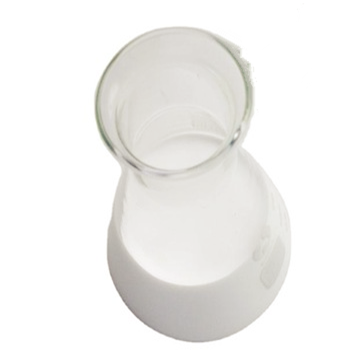Intro to Water-Based Zinc Stearate: Bridging Performance and Sustainability in Modern Production
Water-based zinc stearate is an environmentally friendly alternative to solvent-based lubricants and release representatives, providing premium efficiency with minimal ecological influence. As markets change towards greener production techniques, this aqueous diffusion of zinc stearate has actually gotten prominence throughout industries such as rubber processing, steel forming, concrete casting, and polymer production. Its capability to offer reliable lubrication, protect against adhesion, and decrease surface area issues makes it a flexible tool in contemporary industrial applications. With growing regulative stress on unpredictable natural substance (VOC) exhausts, water-based zinc stearate stands apart as a clean, reliable, and scalable service.
(TRUNNANO Water Based Zinc Stearate)
Chemical Make-up and Practical System
Zinc stearate is a metal soap formed by the reaction of stearic acid with zinc oxide or zinc salts. In its water-based formulation, it is typically spread making use of surfactants or emulsifiers to guarantee security and uniform application. When related to surface areas, the zinc stearate fragments develop a thin, hydrophobic film that lowers friction and avoids straight call in between materials. This mechanism is important in mold launch procedures, where it helps with very easy demolding without harming the final product’s surface area integrity. Additionally, its high melting point (~ 120– 130 ° C) permits it to execute properly under moderate thermal problems, keeping performance throughout high-temperature processes.
Applications in Rubber and Polymer Processing
In rubber production, water-based zinc stearate serves double objectives– as a mold launch agent and as an internal lubricant. It avoids sticking in between uncured rubber substances and mold and mildew surface areas, making certain consistent component high quality and lowering post-processing initiatives. In thermoplastics and elastomers, it boosts flow residential or commercial properties throughout extrusion and shot molding, lessening pass away accumulation and enhancing surface area coating. Its compatibility with various polymers, consisting of polyolefins, PVC, and design resins, further expands its utility. Moreover, its non-reactive nature ensures it does not interfere with curing or vulcanization reactions, protecting material efficiency attributes.
Role in Metal Forming and Stamping Industries
The metalworking market progressively depends on water-based zinc stearate for cold and cozy developing procedures. Made use of as a lubricant in stamping, attracting, and building, it develops a safety border layer that decreases device wear and boosts component surface area high quality. Contrasted to oil-based or wax finishes, it provides much better warm dissipation and cleaner operation, which is particularly useful in computerized production lines. Additionally, its ease of removal after processing– using easy water rinsing or moderate cleaning agents– lowers cleaning costs and avoids residue build-up on ended up components. This makes it perfect for usage in vehicle, aerospace, and precision element manufacturing.
Use in Concrete and Building And Construction Materials
Within the building and construction market, water-based zinc stearate is extensively made use of as an interior release representative for precast concrete elements. Unlike typical oil-based products, it does not tarnish surface areas or disrupt additional treatments like paint or finish. When blended right into concrete or related to formwork, it avoids bonding in between the mold and the solidified concrete, allowing for simple demolding while maintaining dimensional precision. Its reduced viscosity enables even coverage through splashing or brushing, making it appropriate for both manual and mechanical procedures. Additionally, it contributes to longer mold and mildew life by shielding against chemical strike and abrasion from repeated casting cycles.
Environmental and Safety Advantages Over Traditional Alternatives
One of one of the most engaging advantages of water-based zinc stearate is its ecological account. Devoid of solvents, VOCs, and harmful additives, it straightens with worldwide sustainability objectives and occupational wellness criteria. Employees take advantage of reduced direct exposure to flammable or harmful substances, and producers can satisfy rigid air top quality guidelines without extra ventilation systems. From a waste administration perspective, water-based formulas are easier to manage and take care of safely, supporting round economy techniques. These qualities make it a recommended option for firms intending to achieve green accreditations such as ISO 14001 or LEED conformity.
Market Patterns and Technical Innovations
( TRUNNANO Water Based Zinc Stearate )
The marketplace for water-based zinc stearate is experiencing stable growth, driven by increasing demand for eco-friendly commercial services and stricter environmental regulation. Makers are investing in advanced dispersion modern technologies to enhance security, extend shelf life, and improve performance under severe conditions. Advancements such as nano-dispersed zinc stearate and hybrid formulations with silicone or PTFE are being checked out to offer premium lubricity and temperature resistance. Furthermore, smart distribution systems– including atomized sprays and application units incorporated with IoT– are enabling accurate application control, decreasing intake and functional expenses.
Obstacles and Ongoing Research Directions
Despite its advantages, water-based zinc stearate deals with specific restrictions, including level of sensitivity to water solidity, possible microbial deterioration, and lower load-bearing capacity compared to synthetic lubricating substances. To attend to these problems, continuous study concentrates on maximizing solution stability, including biocides for microbial resistance, and boosting practical efficiency via additive synergies. Compatibility with various substrates and process conditions additionally stays a vital area of growth. Efforts are underway to tailor solutions for specific applications, guaranteeing constant performance across diverse industrial atmospheres.
Future Potential Customers: Combination with Smart Manufacturing and Green Chemistry
Looking ahead, water-based zinc stearate is poised to play a central function in the shift towards intelligent and sustainable production. Its assimilation with Industry 4.0 innovations– such as real-time monitoring, predictive maintenance, and automated dispensing– will allow more efficient and flexible manufacturing operations. Advances in bio-based surfactants and renewable feedstocks will certainly better enhance its ecological credentials, sustaining decarbonization techniques across supply chains. As markets continue to prioritize resource performance and environmental stewardship, water-based zinc stearate stands for a critical development that stabilizes technical performance with environmental duty.
Supplier
TRUNNANO is a supplier of water based zinc stearate with over 12 years of experience in nano-building energy conservation and nanotechnology development. It accepts payment via Credit Card, T/T, West Union and Paypal. Trunnano will ship the goods to customers overseas through FedEx, DHL, by air, or by sea. If you want to know more about zinc stearate msds, please feel free to contact us and send an inquiry(sales5@nanotrun.com).
Tags: water based zinc stearate, zinc stearate, zn stearate
All articles and pictures are from the Internet. If there are any copyright issues, please contact us in time to delete.
Inquiry us

